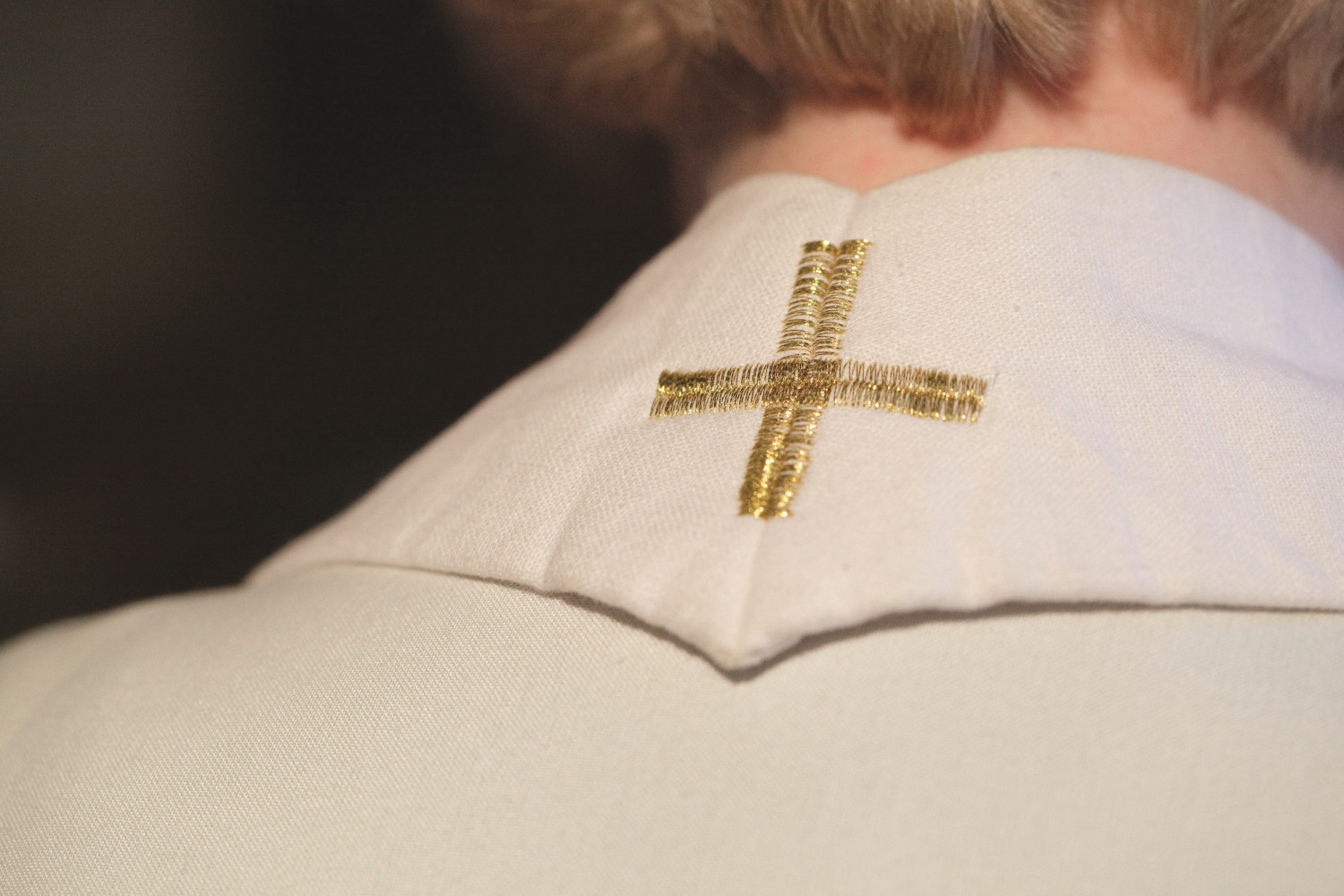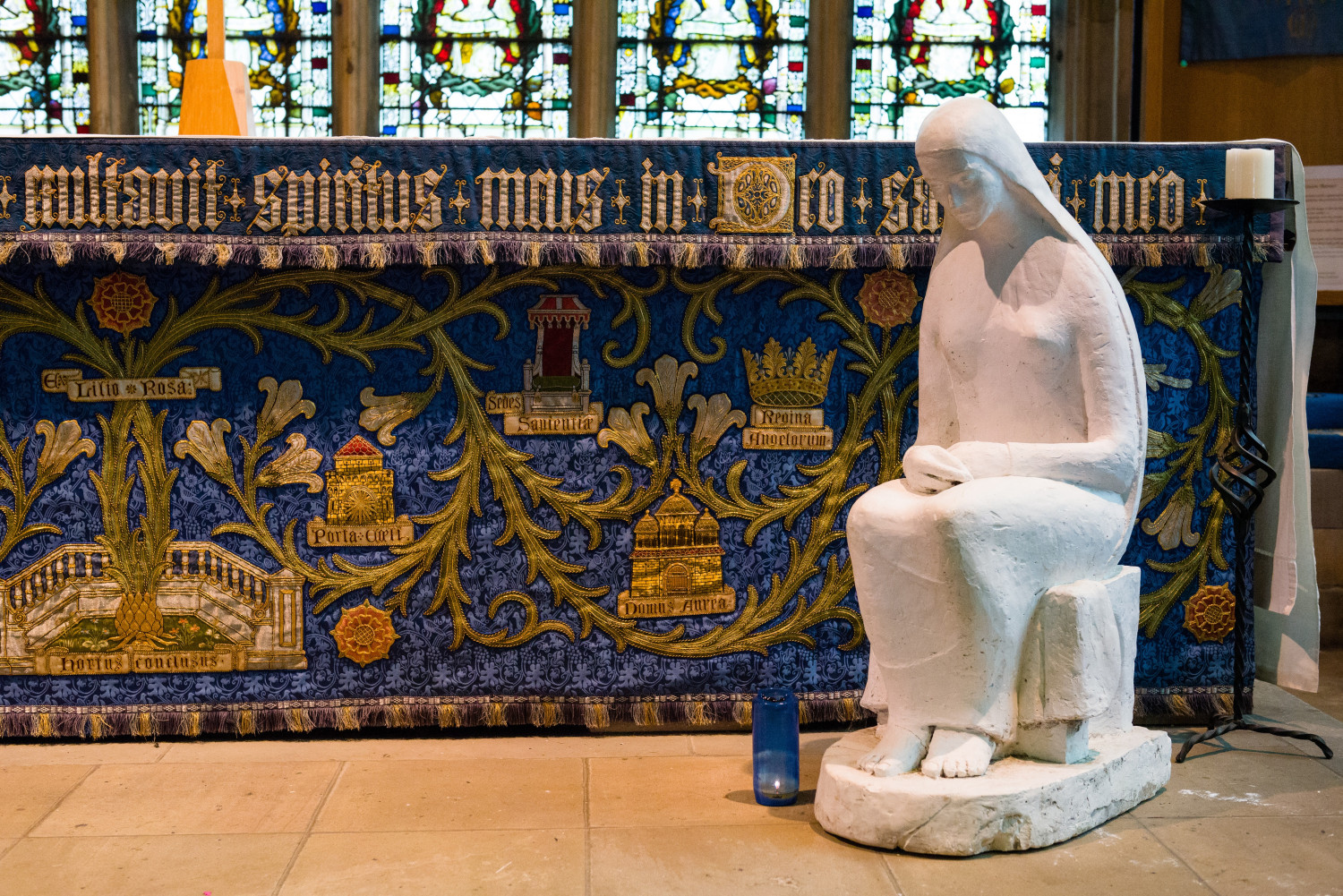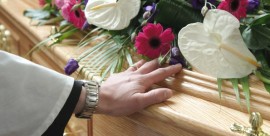 As I sit and reflect upon the fact that the Church of England has on more than one occasion won a Good Funeral Award - an award that recognised we 'do good funerals' - I am reminded of the bishops words as priests are ordained,
As I sit and reflect upon the fact that the Church of England has on more than one occasion won a Good Funeral Award - an award that recognised we 'do good funerals' - I am reminded of the bishops words as priests are ordained,
“With all God’s people, they are to tell the story of God’s love and minister to the sick and prepare the dying for their death”. This we do as we get alongside those who are facing their final journey and with the ones who are left behind to grieve and mourn.
We hold the story of a person’s life, within the greater story of salvation and hope. And this I believe is the ultimate difference between a ‘church-led’ funeral and a ‘non church’ funeral. I guess I talk particularly about Anglican ministers here, but there are of course other denominations that do church.
The liturgy holds a structure in which we can move through our emotions, interwoven with the story of a person’s life and achievements. It allows us to acknowledge we are in the presence of God, held in his love and supported by prayer. Within this holy space, which can be in a church, at a crematorium, a graveside or a woodland burial site, we recognise the individuality of each person’s life, and celebrate who they were.
 Sometimes people think that if a vicar is in charge of the funeral service there are only going to be prayers. If a family say they are not particularly religious or regular church goers, this can seem a daunting prospect. However, we need to get the message across to funeral directors and families, that each and every person is entitled to a C of E funeral, wherever they live, and no matter whether they come to church or not. The services are handled sensitively and pastorally to recognise each individual situation. I think if a funeral director asks the question, ‘Was your granny religious?’, what the family hear is ‘Did your granny go to church regularly?’. Sadly, I guess, for many families, they will answer ‘no’, because the question is not very clear.
Sometimes people think that if a vicar is in charge of the funeral service there are only going to be prayers. If a family say they are not particularly religious or regular church goers, this can seem a daunting prospect. However, we need to get the message across to funeral directors and families, that each and every person is entitled to a C of E funeral, wherever they live, and no matter whether they come to church or not. The services are handled sensitively and pastorally to recognise each individual situation. I think if a funeral director asks the question, ‘Was your granny religious?’, what the family hear is ‘Did your granny go to church regularly?’. Sadly, I guess, for many families, they will answer ‘no’, because the question is not very clear.
This confusion, along with the concern that their loved one will not be mentioned in a church-led service, makes many families opt for a secular led service where, yes, the loved one is remembered, but everything is past tense. At a church service, the past, present and future tense is used, as the uniqueness of that loved one’s life is shared, in their life story, in poems, in tributes from family members and friends, alongside significant pieces of music and songs.
 For example I was recently asked to take a funeral for a family who had declared themselves as not religious. I called to see them, found out about their history, and the story of their mum. I quite quickly established that this lady had been baptised and attended a church. She talked often of her loved ones passed , and her confident belief that they were in heaven. What may have ended up as a non religious funeral, with no prayers or blessings, turned into an uplifting service, with talk of the future life with God. Her son contacted me afterwards, to tell me how having a vicar there, in robes, at the front, put their minds at rest, and added something to the service that might have been lost otherwise. ‘It made it all seem right and proper’, he said, ‘a bit like a church wedding as opposed to a hotel one.’
For example I was recently asked to take a funeral for a family who had declared themselves as not religious. I called to see them, found out about their history, and the story of their mum. I quite quickly established that this lady had been baptised and attended a church. She talked often of her loved ones passed , and her confident belief that they were in heaven. What may have ended up as a non religious funeral, with no prayers or blessings, turned into an uplifting service, with talk of the future life with God. Her son contacted me afterwards, to tell me how having a vicar there, in robes, at the front, put their minds at rest, and added something to the service that might have been lost otherwise. ‘It made it all seem right and proper’, he said, ‘a bit like a church wedding as opposed to a hotel one.’
We often hear that a funeral should be a celebration of someone’s life, not a sad occasion. And I guess, there is a part of me that believes this too. But there is another part of me that sees the ritual of gathering, in a holy space, with family, friends and the vicar, as an opportunity to express grief that tells of the heartache we feel because someone we love has died. It’s good to cry, be held, and show emotions. It is not seen as unusual to be sad when someone dies; there are moments of intense poignancy within the church-led funeral service which enable these raw emotions to be acknowledged. Comforting, familiar words that help us to recognise the place we are, and that is in the presence of God.
We are good at our job…and it is good to be recognised for it!
Juliet Stephenson won Celebrant of the Year at the Good Funeral Awards.






